Anatomy of an Era: David Alderman, Part 3
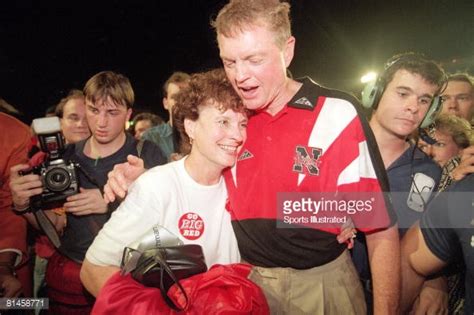
Excerpted from Chapter 59, No Place Like Nebraska: Anatomy of an Era, Vol. 2 by Paul Koch
Anatomy of an Era: David Alderman, Part 3
Q: Do any one of (Coach Osborne’s talks) stand out to you in particular?
DA: I know the other one… He told the story about, “There’s a football player on a team, maybe not the last person to get on the field or whatever, but close. And his dad would come to every game but the kid never saw the field. And finally, the kid’s father passed away and he just begged the coach, “Let me play. Whatever it takes, just get me in the game.” So the kid gets in the game later on, somewhere down the road, and he makes all these plays and was basically the MVP of the game. And the coach was just like, “What in the world got into you?” And the guy was like, “Well, you know that my dad came to every game?” and the coach said, “Yeah, I knew that.” “Well,” the kid said, “what you may not have known was that my dad was blind. And now that he’s in heaven I have the feeling that he’s finally able to see me.”
So the whole idea was to ‘play for something greater than yourself.’ That was the idea. And it was one of those things that have still stuck to me to this day. It was just a story, a parable, a fable, if you will. And you’d see it time and time again… his point was that when people play for themselves they get to the point where they’re satisfied and they stop trying anymore, they start regressing. But if there’s something outside of you that you’re playing for, that usually helps to motivate you and drive you to reach your best, reach your potential.
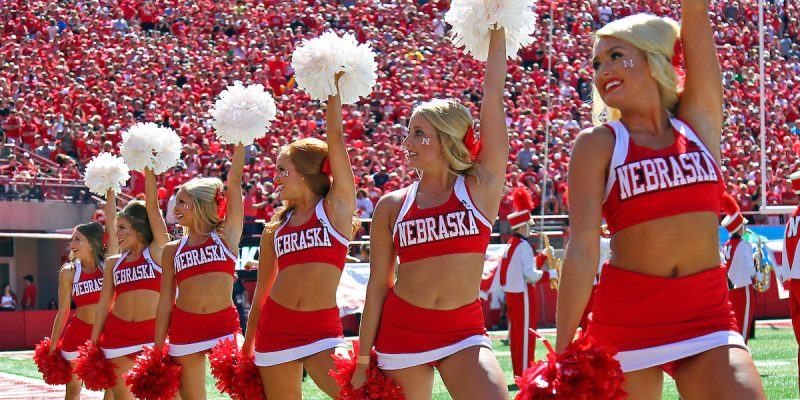
Q: Who did you find yourself playing for?
DA: Well, the one thing was God. One of the things I couldn’t stand growing up as Christian and being in athletics was the perception that the Christian athlete was, if you will, didn’t try as hard. I’ve said several times, there’s more to life than football, but usually that was accompanied by, “Since there’s more to life than football I’m not going to try this or that or anything else.“ And that was definitely a point of view I really wanted to develop, because I’m really a representative of God, or an ambassador for Him, and I’m gonna make sure I do everything I can to glorify him so He looks good. So that was one of the things, now. I know at times people called me a Practice-All-American, but that was why. (laughs)
Q: But practices produce All-Americans, right?
DA: Yeah, sometimes. Yeah. (laughs)

Available on Amazon.com
Q: I think it was Boyd who told me, as well as Coach Tony Samuel, recently, “Champions are made when nobody’s watching.”
DA: Yeah, big time. One of our favorite quotes, and I’ll butcher it -who’s the guy? I think it was Joe Frazier- who always said, “Champions are made when no one’s looking. It’s the times when you’re up before the sun and running those miles and nobody sees you.” And people always talk about how champions are born for the occasion or rise up to the occasion or whatever, but Frazier’s opinion was that you’re going to be exposed when the bright lights come on. Everyone is finally going to either see the hard work that you put in or you’re gonna fall on your face. ”When the bright lights come, that’s gonna expose what you did when no one was looking.“
Q: So after five years on the team what would you say are the major lessons you’ve taken away from that whole experience, David?
DA: I thought you might ask this question. There are two things I really think I took away from that experience.
One, it’s basically the idea of surrounding yourself with quality people. Character counts, basically, and how you respond or react to different situations. And you can stand up for what’s right even when people believe what you do is wrong. And I truly believe the company you keep says a lot about your character and at a lot of times defines your character. I think if you surround yourself with good character people they’re gonna rub off on you and you’re going to end up doing the right thing, and if you surround yourself with other people with other goals or other ideas you’re going to be dragged along with those things. I guess I would just say that character counts and to be conscious of the company you keep. And at Nebraska, being around someone of such great character, it’s hard not to be successful when you’re around successful, character people.
Two, the other thing was just the value of teamwork, you know? The whole idea that if you can do it yourself, your goal is too small. Basically, when you’re willing to give up and willing to do what’s best for the team, how much more you can accomplish as a team. If your goal is for team success and not for personal accolades, it’s amazing what you can accomplish. So those are the two big things.
Q: And when you spoke of Barron Miles taking you under his wing, it reminded me of a book by John Eldridge…
DA: Oh yeah. I’ve got three of his.
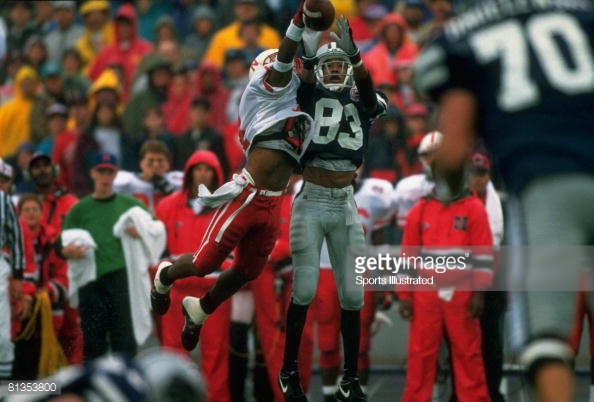
Going high in pass defense
Q: He made a simple statement that every young man basically needs another man in his life who says, “You’ve got what it takes.” I’m sure you probably got some of that from the coaches.
DA: Yeah. Like I said, that spring before my senior year when Darlington talked to me he was like, “This is where I’ve projected you. I expect you to be a starter this year.” And I was like, ‘Yeah, you think I’ve got what it takes. I needed to hear that.’ And that’s one of the things that Robert Lewis talks about in his Men’s University teaching, too, the fact that men need to hear that. In fact, he used the example of when Jesus goes to get baptized. So he gets baptized, and what happened? God speaks. And he says, “This is my son…”
Q: “…in who I am well pleased”?
DA: Right. And He knows what He’s talking about: “This is my son in whom I’m well pleased.” So there are things sons need to hear from their fathers: “I love you, I’m proud of you, and here’s what you’re good at.” Sons need to hear that from their fathers. It just changes your whole perception of husbandry and fatherhood and those types of things.
Q: And hey, speaking of, there’s one guy I haven’t asked you about: Charlie McBride.
DA: (laughs) Master motivator! Now, I wasn’t a defensive lineman -they might not have had as fond of memories of him as I do, because I got coached by him from a distance when he was up in their face yelling obscenities and everything- but it’s easy for me to admire him. The speeches he gave before every game were unbelievable. Everybody was ready to run through walls after his speeches before games.
I remember we all went back for an event to support the team and they had like 900 people show up -and McBride wasn’t there- but they had a videotaped presentation by him and the whole place just blew up, because they all knew what was coming. (laughs) I don’t know if the offensive players did, but there were enough defensive players there, and when you saw him pacing you knew what was coming… and everyone just roared! And he used all his one-liners, which I can’t remember right now. And even if I knew ‘em -and Coach Bohl tried to use the same one-liners- but it just didn’t have the same effect. McBride knew how to deliver it and he would get you ready to run through walls.
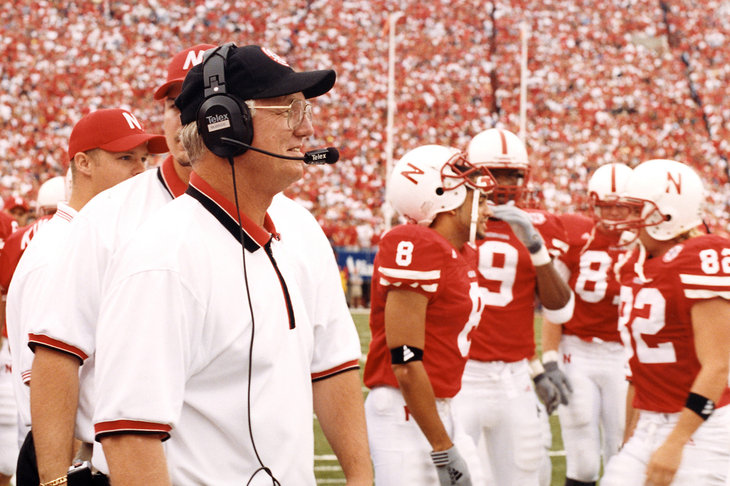
Q: “Are your veins pumping blood or kool-aid?”
DA: Yeah, he had that one. And there was another one of going fast enough so that your eyes were peeled back. And the thing that stands out to me, what I always loved about him, too, was that when one of your teammates makes mistakes, how you better not be the one who goes and chews him out when he makes a mistake. Your job is not to go and basically chew them out for making the mistake, your job is to put your arm around ’em, pick ’em up, to encourage ’em, to say, “I got your back.” To say, “Forget about it” or whatever. “Let us coaches deal with the corrections, right?” But he always talked about fighting a war and being in a foxhole, and as a teammate our job was to pick up our comrade. It wasn’t to berate them or put them down, but to put an arm around them. I know he hated Colorado. Always wanted to beat Colorado. (laughs)
Q: Can you tell me one person the average fan may not know of, someone behind the scenes who deserves a spotlight in what they did for the team? Any one special person who played an integral part in the whole process?
DA: There are a lot of names, but I would go with Jerry Weber. I was a big fan of Jerry. Of course, I spent a lot of time in the training room -more than I would have liked- but I always appreciated Jerry Weber. He would kind of make things light-hearted, but he would give you respect and always give you the best treatment he knew of. I just really appreciated him and his demeanor and everything. I never really worked that much with Sully.
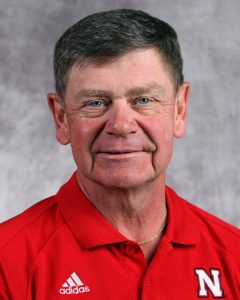
And the other guy with me, personally, who I truly enjoyed, was Bryan Bailey. I’m a huge fan of Bryan Bailey. Bryan was kind of the rehab specialist and he’d put you through the torture chamber, but he was just a great guy. And I’d come back and visit after my days at Nebraska and kind of knock on the window of the weightroom, and he’d wave me in and talk for about twenty minutes. He was just one of those guys who would talk to you and ask you what was wrong, and he was always trying to figure out a way to get you figured out and get you healthy to help the team. He’d say, “We’ve got to get you out there, get you out on the field.” And he did that with everybody and he knew what he was doing. The hamstring is just one of those big muscles and is a quirky thing.
And I know the reason he got hired on before I got there was because years ago all these players were leaving campus and going over to him at the Devaney Sports Center to get rehabbed. (laughs) So Osborne was like, “Hey, we’ve got to put a stop to this.” So they hired him on over for the football part of things. He was very knowledgeable. Always pushing himself to learn more, become better and learn new techniques. I always appreciate people who like to learn instead of “I know it all.” And Bailey was one of those guys who was always willing to learn and always looking for new things to do. He was just really a great guy. He was a guy who was really going give you tough workouts, and he treated you like a friend the whole time.
Q: Well, David, is there anything we haven’t touched upon? Anything that truly made Nebraska a unique organization or contributed to the success of the team that we haven’t already covered?
DA: There are a couple of things. One of the things, the moments that stick out the most -and I don’t know if anybody else would say it- but there was the video crew. They were first starting to come into their own that time. There was a lot of video-type stuff. There were Carp and Moose and Schmall and Finn, and Shot, too. The video editing, what was really cool was McBride would always do his speech and then they’d play some video, right? They’d have some of the best hits of the season, some motivational or blood-pumping hard rock music with that.
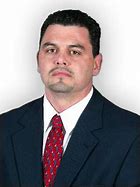
Bryan Carpenter
I think they started that in ’93, so of course we’re going to play Florida State in the Orange Bowl and before that game the video crew went around and put a video together with all sorts of clips on it, great plays and times in the locker room, and they put it to the Mariah Carey song “Hero.” And I think everybody walked out of that locker room feeling entirely invincible. I was completely and utterly shocked we lost that game, because I don’t think there was any way in the world we were going to lose that game after walking out from seeing that video. To this day, every time I hear that song -and there’s several times I flash back and I think, ‘Man, how cool would it be to have that video?’- and even though we lost that game, the feeling I remember walking out of that room with was just unbelievable.
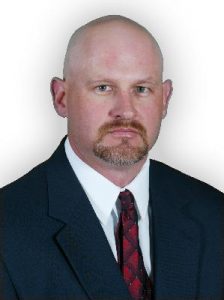
Brian Mohnsen
And here’s a funny one: here I am in fourth grade and back in Nebraska, and I just bawled my eyes out when we lost the national championship to Miami in ’84. I cried my eyes out, cried myself to sleep. So then to play Miami and win the national championship? What a great feeling. (laughs) Just the full circle I had. And my freshman year, to have Turner Gill as a coach, it was like, ‘Wow! This is cool!’ I had his jersey and everything when I was back in 4th or 5th grade or whatever, and here I am playing catch with him before practice. But those are just a couple of things that are very memorable.
And that reminds me, as far as players –Clinton Childs will always be a favorite running back to me, because I knew him so well and grew up with him and just the character that he was- but Lawrence, to me, if you ask me who is the running back in Nebraska history, who was the most electric, had the game-breaking ability, the one you wanted to watch every time he got the ball? It was Lawrence Phillips. To this day, how he made six guys miss on that draw play with Michigan State and scored is beyond me. And, of course, that was the game before the incident, but he pretty much had the Heisman sewn up. He was the most unbelievable talent at the running back position that I have ever seen.
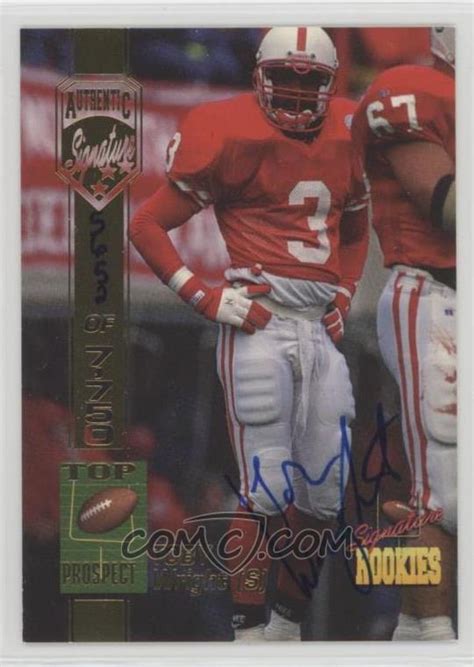
And then on the defensive side it would have been Toby Wright. Holy cow, I think that guy’s helmet came off ten times a game with how hard he hit everybody. And I remember in practice, us DB’s, we’d hit each other in this cone drill, and every time I had to go up against him I just dreaded it. My helmet went off a couple of times in just the half-speed, three-quarter speed drills. The hit he had against William Floyd from Florida State, that hit he put on him, that’s the most vicious hit I’ve ever seen. Because Floyd got the ball, right, and had about ten yards full of steam, and Toby had about ten yards full of steam. And Toby hit him and they just stopped.
I just remember, to this day, it was the biggest hit I ever saw. That guy was just an animal on defense. I remember, Coach Darlington said the Rams designed their whole defense around him when they drafted him. That guy loved to hit and he was good at it. So Toby on defense and Lawrence on offense were my favorite guys to watch.
End conversation.
What stood out most from our time with David was his, “..the Nebraska upperclassmen, in my mind, didn’t view the younger people as a threat, but actually acted as coaches.” In piecing together our accumulated recollections from those days, you can sense a thread of player-coaches running trough the fabric, always paying it forward. I assume this was due to both high individual self-esteem, team esteem and a sense of empathy for many of the youngsters, as the elder team members themselves were perhaps passing the torch in honor of a previous player-mentor or perhaps providing some greenhorn the encouragement they had never received a day long ago when they needed it most. Maybe this type of thing is cyclical or maybe it’s always been part of the Cornhusker undercurrent, but during this era you can be sure the supportive, team-focused mindset was lived out most every day in some way.
Then there was the comment on the importance placed on goal-setting and the differences in the coaching personalities, their ability (or lack thereof) to engage with the athletes: “..with Coach Darlington: He was very concerned with stats. Very, very concerned. He would have them on his wall every single week and have everything highlighted as to where we were at.” I’ve sensed that the most tenuous player-coach relationships were that of the linebackers to Kevin Steele and the defensive backs to George Darlington. I wonder if their being defensive coaches made a difference or if it’s just coincidence. Maybe the guys on that side of the ball lived life with a little gruffer stance, functioning a little rougher around the edges than their offensive counterparts. Perhaps their tolerance for imperfection was not quite as loose as that of other positions, maybe, for one false move and it’s often a touchdown as a result. We can formulate our own theories, but I’m leaning toward the personality factor on this one.
The last, but no less prominent notion, was David’s “…if you can do it yourself, your goal is too small.” What a profound, team-affirming concept! The statement is loaded with meaning, as it assumes you already have a goal, much less be willing to subjugate the need for close-gripped control of the endeavor to the many and share equally among that many in the glory of accomplishing it. It’s been said that ‘farming takes faith,’ and more than a few took a leap of faith in weeding out seeds of unselfishness for the team’s sake, because there grew a bountiful harvest of unity.
Tacking onto that thought was reference to Coach Osborne’s messaging: “…his point was that when people play for themselves they get to the point where they’re satisfied and they stop trying anymore, they start regressing. But if there’s something outside of you that you’re playing for, that usually helps to motivate you and drive you to reach your best, reach your potential.” Be it their family, their friends, their teammates, their coaches, the school or the state of Nebraska itself, they could always find someone to play for. Now that’s some unity, belief and respect.
Notable quote #2:
David Alderman on the rough and tumble Husker practices: “(Mike ‘Biff’ Roberts) said he could see blue sky out of one eye and green grass out of another.“
Copyright @ 2013 Thermopylae Press. All Rights Reserved.
Photo Credits : Unknown Original Sources/Updates Welcomed
Author assumes no responsibility for interviewee errors or misstatements of fact.